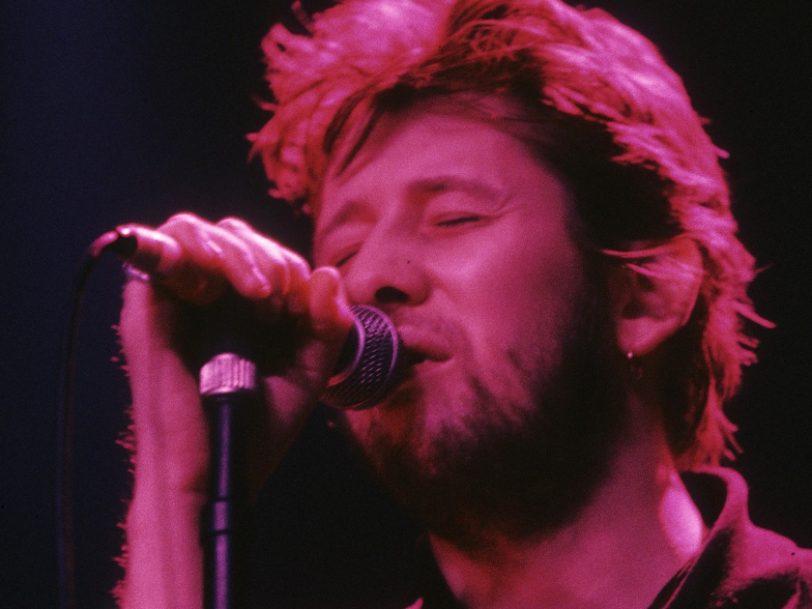Maverick singers often find a home within the music industry, but truly unique performers are few and far between. In Shane MacGowan’s case, however, the adjective “unique” seems appropriate, for this singular songwriter and Pogues frontman has left a mark on music like no one before or since.
MacGowan’s reputation rests primarily upon the music he made while fronting The Pogues. Through effectively cross-pollinating the potent Irish folk of acts such as The Dubliners with the energy and attitude of punk, MacGowan’s team were a force of nature during their 80s heyday. Spurred on by the quality of their mercurial leader’s songs, the volatile but brilliant band created a new type of rebel music, and their landmark albums, such as Rum Sodomy & The Lash and If I Should Fall From Grace With God, will endure for generations to come.
Listen to the best of The Pogues here.
“He had a very advanced reading age”: birth and early years
Most retrospectives paint MacGowan as the outsider’s outsider, but the reality is a little more complex. Few songwriters have penned more resonant immigrant songs, yet while MacGowan’s parents, Maurice and Therese, relocated to the UK before their son was born, they were atypically well-to-do and didn’t suffer the hand-to-mouth existence many post-war Irish émigrés were forced to endure.
Buy The Pogues’ ‘The Best Of The Rest’ on limited-edition green vinyl.
Indeed, while MacGowan spent idyllic childhood summers at his family’s cottage in Nenagh, County Tipperary, in Ireland, he was actually born on Christmas Day 1957 in Pembury, just outside Tunbridge Wells, in Kent. He also later attended London’s Westminster School. No ordinary secondary establishment, MacGowan’s alma mater had previously educated influential figures ranging from architect Sir Christopher Wren through to high-ranking politicians such as ex-Chancellor Of The Exchequer Nigel Lawson, and stars of the stage, including Sir John Gielgud and Sir Peter Ustinov.




